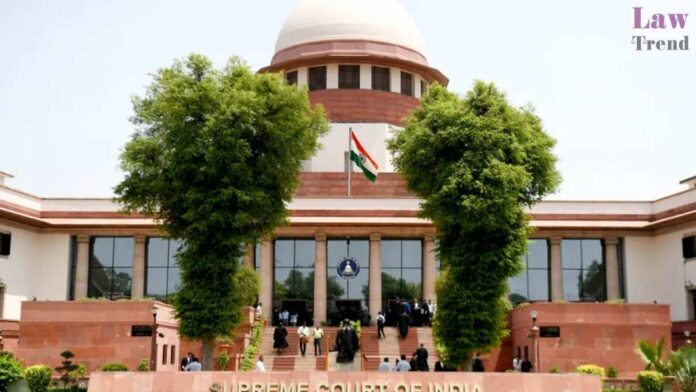The Supreme Court today issued notice on criminal appeals filed by the State of Maharashtra challenging the Bombay High Court’s recent decision acquitting all 12 accused in the 2006 Mumbai train blasts case. While the apex court did not interfere with the release of the accused from prison, it stayed the precedential value of the High Court’s judgment.
A bench of Justice M.M. Sundresh and Justice N.K. Singh heard the submissions of Solicitor General Tushar Mehta, who appeared for the Maharashtra government. SG Mehta clarified that he was not seeking a direction for the re-arrest of the released accused, but urged the Court to stay the judgment on the ground that it contained observations which could impact other pending cases under the Maharashtra Control of Organised Crime Act (MCOCA).
“Your lordships may consider saying, the judgment is stayed, however, they will not be required to come back to the prison,” SG Mehta submitted.
Taking note of these concerns, the bench passed the following order:
“We have been informed that all the respondents have been released and there is no question of bringing them back to the prison. However, taking note of the submission made by the Solicitor General on the question of law, we are inclined to hold that the impugned judgment shall not be treated as a precedent. To that extent, there is a stay of the impugned judgment.”
Background: Bombay High Court Acquits All Accused
On July 21, a division bench of the Bombay High Court comprising Justice Anil Kilor and Justice Shyam Chandak quashed the conviction of all 12 men previously found guilty by the Special MCOCA Court in connection with the 7/11 Mumbai serial train blasts.
The trial court had sentenced five of the accused — Kamal Ansari, Mohammad Faisal Ataur Rahman Shaikh, Ehtesham Qutubuddin Siddiqui, Naveed Hussain Khan and Asif Khan — to death for planting the bombs. The remaining seven were handed life terms.
However, the High Court found that the prosecution had failed to establish their guilt beyond reasonable doubt. It also strongly criticised the manner in which the investigation was conducted by the Maharashtra Anti-Terrorism Squad (ATS), observing that the accused were subjected to custodial torture and that investigating officers were under pressure to produce results.
About the Blasts
On July 11, 2006, seven bombs exploded in quick succession on Mumbai’s suburban Western Railway local trains during the evening rush hour. The coordinated attacks killed 189 people and left over 820 injured. The incident remains one of the deadliest terror strikes in India’s history and came to be known as the “7/11 Mumbai Blasts.”
With the Supreme Court now taking up the matter, the final word on the acquittals will rest with the top court’s review of the evidence and legal conclusions drawn by the Bombay High Court. For now, the High Court judgment stands stayed only to the extent that it will not be treated as a binding precedent in other MCOCA-related cases.




